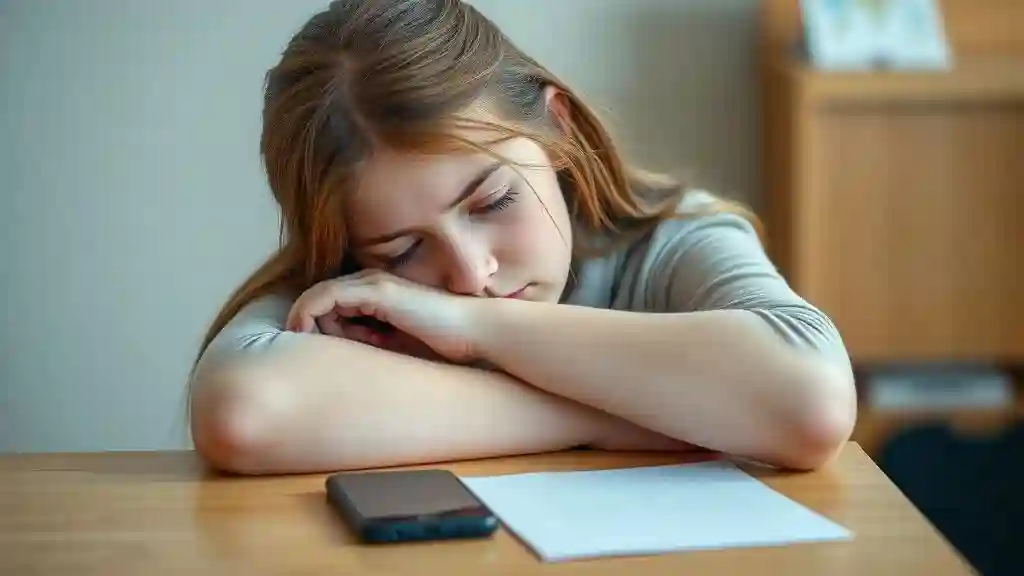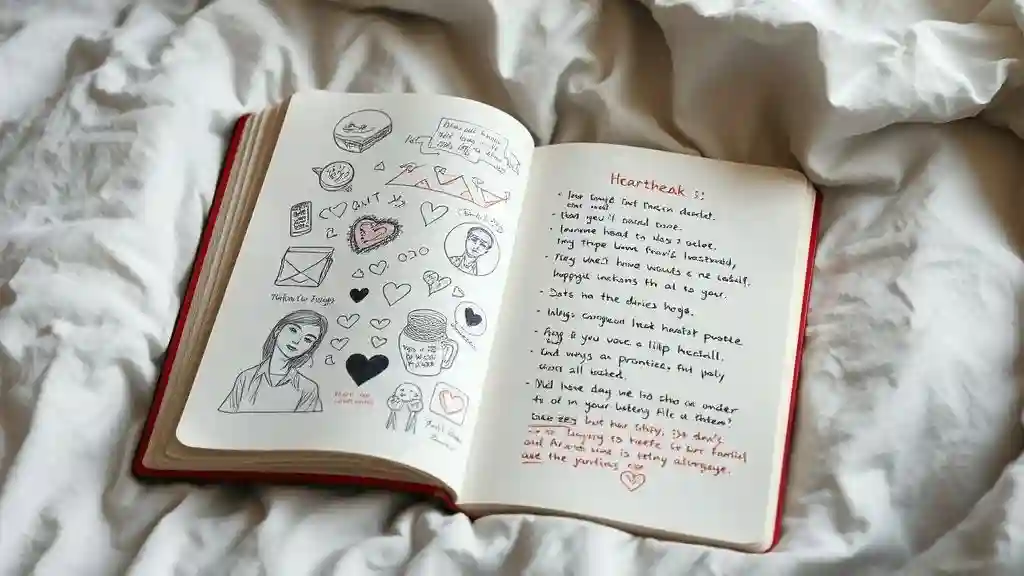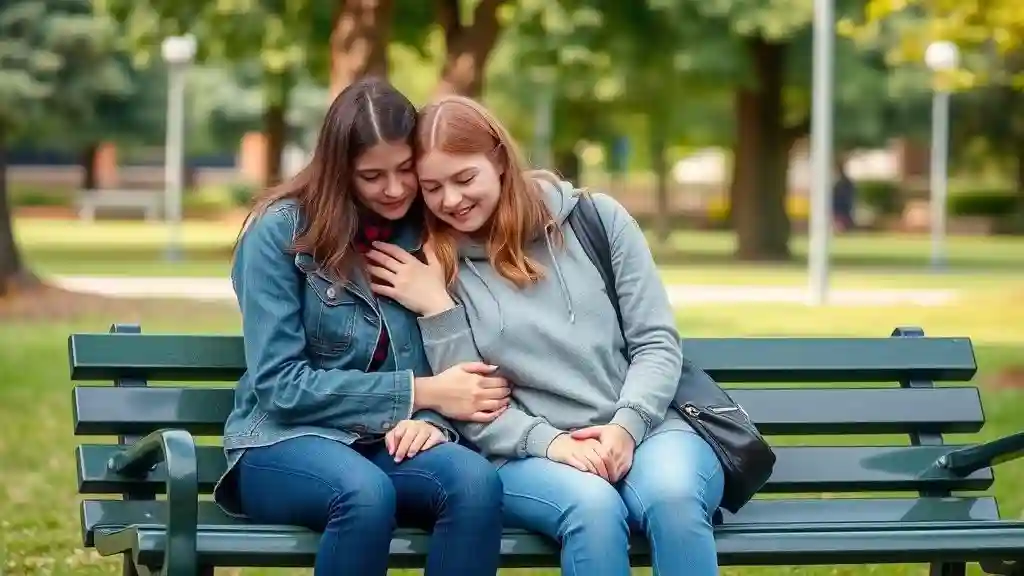
Breaking up for the first time feels like the world just flipped upside down. One moment, you were laughing at silly inside jokes, and the next, you’re staring at your phone, wondering how someone who felt so close suddenly feels like a stranger. If you’re searching for first breakup advice for teenagers, I want you to know this: your pain is real, but it’s also survivable. Every generation before you has walked through this fire — and you will come out stronger.
Why the First Breakup Hurts the Most
Think of your heart like soft clay. When love touches it for the first time, it leaves deep imprints. That’s why healing after your first breakup feels heavier than you expected. You’re not just mourning the person — you’re also mourning your first taste of connection, your first “what if,” and your first dream of forever.
A 16-year-old girl once told me, “It feels like someone erased the future I had in my mind.” That’s exactly how the first heartbreak hits. It’s not just about missing the person; it’s about losing the little movie you were playing in your head of school dances, late-night chats, and growing up together.
First Breakup Advice for Teenagers — Step One: Feel It, Don’t Fight It

When your heart is raw, people will tell you to “move on” or “get over it.” But here’s the truth: teenage heartbreak recovery starts with allowing yourself to feel. Cry into your pillow. Write angry notes in your journal. Listen to sad songs if you need to. Suppressing emotions doesn’t make them go away — it just stores them up for later.
Give yourself permission to grieve for 21 days. That’s three weeks of emotional detox. After that, you’ll notice the intensity softens, and the clouds begin to part.
The Do’s and Don’ts of Teenage Heartbreak Recovery
Don’t Chase, Don’t Beg
I know you’re tempted to text, call, or ask for “closure.” But chasing an ex only deepens the wound. Remember, dignity now will save you pain later.
Do Surround Yourself with Safe People

Your friends, cousins, or even a trusted sibling — lean on them. Sometimes, just sitting beside someone who cares is enough to remind you that you’re not alone in this storm.
Don’t Stalk on Social Media
Unfollowing or muting your ex isn’t petty — it’s self-care. Every scroll that reopens the wound delays your healing.
Do Rebuild Daily Routines
Teenagers often build routines around a partner — texting before bed, hanging out at lunch, planning weekends. When that’s gone, your life feels empty. Replace those rituals with healthier ones: morning walks, sketching, sports, or joining a new club.
Why Teenage Breakups Can Shape Your Future
Your first heartbreak is not just pain; it’s your first big lesson in resilience. Every adult who looks back at their teen years remembers the person who once broke their heart — but they also see how it shaped them into who they are now.
Think of it like strength training. The muscle of your heart is being stretched, tested, and yes — it hurts. But tomorrow, it will beat steadier, wiser, and more courageous.
When I was 17, my first breakup left me curled up in bed for weeks. My mom told me something I’ll never forget: “He was your first chapter, not your whole book.” Decades later, I look back and smile — she was right. That breakup cleared the path for me to become the woman I am today.
Signs You’re Starting to Heal After Your First Breakup
- You can go a full day without thinking about them constantly.
- Their name doesn’t sting like it did before.
- You laugh again — even if just at a meme or a silly moment with friends.
- The future doesn’t feel scary; it feels open.
Truth bomb: Healing after your first breakup doesn’t mean you’ll forget the person. It means their memory will stop controlling you. Instead of being the weight pulling you down, it becomes a stepping stone pushing you forward.
First Breakup Advice for Teenagers Finding Yourself Again
Okay, sweetie, let’s talk about what comes after the tears. You’ve cried, you’ve felt lonely, maybe even angry — and that’s all completely normal. Teenage heartbreak recovery isn’t about rushing your feelings; it’s about slowly learning to breathe again, one step at a time.
Take Care of Yourself, Really
I mean it. I know it sounds simple, but it isn’t. Your heart needs gentle care, like a plant after a storm. Water it with kindness, sunlight with laughter, and a little fertilizer of self-love.
Tiny Things That Make a Difference

- Write your feelings in a notebook, even if no one will read it. Let the pain pour out.
- Take a short walk outside and notice the sky, the birds, the world still moving — it helps your mind shift.
- Draw, doodle, hum, sing — whatever allows your emotions to breathe.
I remember a 16-year-old girl who scribbled letters to her ex that she never sent. She poured all her anger, confusion, and sadness onto paper. At first, it hurt, but slowly, her heart felt lighter. Sometimes, writing is like holding your own hand through the storm.
Rebuild Your Confidence, One Step at a Time
Breakups often leave us questioning our worth. I promise you: you are more than a text, a call, or a missed conversation.
Celebrate Small Wins
Did you finish a project? Help a friend? Laugh at a funny video? Those are victories. Collect them like little stones, and soon, you’ll have a solid path beneath your feet.
Set Simple Goals
It can be tiny: read a chapter of a book, run a lap, try a new recipe. Every small achievement reminds your heart that life is still full of possibility.
Talk to Yourself Kindly
Say it aloud:
- “I am enough.”
- “I will be okay.”
- “My heart is strong, and it will heal.”
Hearing yourself say these words makes them real.
Lean on People Who Truly Care
It’s okay to ask for help. Sometimes just sitting with someone who listens, really listens, is all you need.
There was a boy, 15, crushed from his first breakup. He wouldn’t speak to his parents, but his older sister just said: “I’ve felt this too, and I promise it gets easier.” That was enough. Just knowing someone understood made him cry, then breathe, then finally, smile again.
How Trusted Adults Help
- They don’t have to fix it; just hearing them say “I get you” is comforting.
- Sharing their stories of heartbreak can normalize yours.
- They can gently guide you toward healthy routines and distractions.
Learn From This First Heartbreak
Pain carries lessons if you choose to see them.
Gentle Reflection Questions
- What boundaries do I now know are important?
- How can I communicate better next time?
Remember: this isn’t about blame. It’s about understanding yourself so the next relationship, when it comes, will be healthier and happier.
I once knew a girl who cried for weeks after her first love ended. But she also painted, joined a school club, and volunteered at a local shelter. Slowly, her laughter returned. She realized she could be happy on her own first, before giving her heart again.
Embrace Hope

This is the hardest, but also the most important. First love endings feel permanent, but they are not. Each heartbreak is a step toward growth. You’re learning patience, resilience, and self-respect — and those will serve you for the rest of your life.
One young teen girl felt she’d never trust again. Months later, she met new friends and discovered hobbies she loved. Slowly, she felt her heart open again. The pain didn’t disappear, but it softened. She learned: your first heartbreak is just the beginning of your story, not the end.
Practical Takeaways
- Feel your emotions fully — don’t rush grief.
- Limit contact with your ex; it’s okay to unfollow or mute.
- Express yourself through journaling, art, or music.
- Lean on someone who cares — sibling, parent, mentor.
- Focus on small goals and personal wins.
- Reflect on lessons without blaming yourself.
- Believe in hope — your heart will love and heal again.
Remember, darling: healing isn’t linear. Some days will be easy, some days heavy. Every tear, every sleepless night, every pang of missing them is shaping you into someone stronger, wiser, and braver. Take one small act of self-love today — a call to a friend, a walk, or a quiet moment with your journal. That’s where healing begins.
Disclaimer: This post is for informational and emotional support purposes only. Every relationship is unique, and this is not professional legal, medical, or mental health advice. Read our full disclaimer.
Affiliate Disclosure: Some links in this post may be affiliate links. If you make a purchase through them, I may earn a small commission at no extra cost to you. Learn more here.